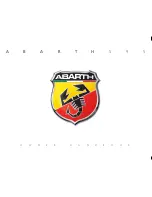
AIR CONDITIONING
SG01 - Basic System
SG01-10
TC070-15-01H
Refrigerant System Service Warnings (Reference)
Handling Refrigerant
• Avoid breathing air conditioning refrigerant or lubricant vapor. Exposure may irritate
eyes, nose and throat. Also, due to environmental concerns, we urge use of
recovery/recycling/recharging equipment when draining R-134a from the air
conditioning system. If accidental system discharge occurs, ventilate work area
before resuming service.
• Do not perform pressure test or leak test for R-134a service equipment and/or
vehicle air conditioning system using compressed air. Some mixtures of air and R-
134a have been shown to be combustible at elevated pressures. These mixtures, if
ignited, may cause injury or property damage. Additional health and safety
information may be obtained from refrigerant manufacturers.
• Do not allow the refrigerant to leak near fire or any kind of heat. A poisonous gas
may be generated if the refrigerant gas contacts fire or heat such as from cigarettes
and heaters. When carrying out any operation that can cause refrigerant leakage,
extinguish or remove the above-mentioned heat sources and maintain adequate
ventilation.
• Handling liquid refrigerant is dangerous. A drop of it on the skin can result in
localized frostbite. When handling the refrigerant, wear gloves and safety goggles. If
refrigerant splashes into the eyes, immediately wash them with clean water and
consult a doctor.
Storing Refrigerant
• The refrigerant container is highly pressurized. If it is subjected to high heat, it could
explode, scattering metal fragments and liquid refrigerant that can seriously injure
you. Store the refrigerant at temperatures below 40 °C {104 °F}.
Refrigerant System Service Cautions
Handling Insufficient Refrigerant Level
• If an insufficient refrigerant level is detected at troubleshooting, do not charge (add)
the refrigerant. Because an accurate amount of refrigerant cannot be determined
from the pressure indicated on the manifold gauge, never charge the refrigerant. If
there is too much or too little refrigerant from the refilling, there may be secondary
problems such as damage to the refrigerant cycle parts, or a decrease of cooling
performance. Therefore, if it is determined that the refrigerant level is insufficient,
completely remove refrigerant from the refrigerant cycle and refill with refrigerant to
the specified amount.
Содержание TC070-15-01H
Страница 12: ...AIR CONDITIONING SG01 Basic System SG01 2 TC070 15 01H A C Components Name the components...
Страница 23: ...AIR CONDITIONING SG01 Basic System SG01 13 TC070 15 01H Review Exercise 1 Name the components...
Страница 55: ...AIR CONDITIONING SG02 Control System Manual Air Conditioning SG02 17 TC070 15 01H Cont d...
Страница 56: ...AIR CONDITIONING SG02 Control System Manual Air Conditioning SG02 18 TC070 15 01H Technical Data...
















































